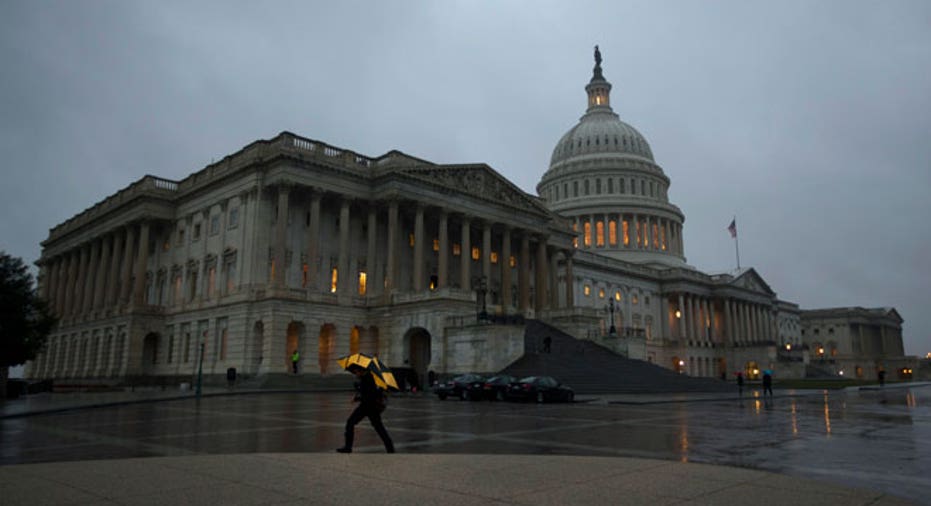On the Hill: Regulations’ Effect on Small Business

This week, the House Committee on Small Business turned an eye to regulations, and their effect on the small business economy. In particular, the hearings that took place examined ObamaCare’s business aggregation rules and the impact of regulations on small business lending. Starting in 2015, the Affordable Care Act will require businesses that employ 50 or more employees who work an average of 30 or more hours per week to offer health insurance – or pay a penalty. However, if a business owner owns stakes in multiple companies, it’s possible his employees may be lumped together according to IRS business aggregation rules, requiring the owner to provide insurance – even if none of the separate businesses has more than 50 workers. The rule is intended to prevent business owners from splitting up their companies to avoid the employer mandate. The confusing aggregation rules were at the heart of the hearing that took place on Wednesday. In his opening statement, Rep. Chris Collins (R-NY) said the aggregation rules were complex and confusing, even for tax professionals. “Some experts have suggested that most small business owners could not interpret these rules without the guidance of a tax specialist,” said Collins. In her testimony, Deborah Walker, CPA , demonstrated the complexity of the aggregation rules – and said even small business tax advisors may be unfamiliar with the rules surrounding this issue. Another witness, Ellis Winstanley, CEO of Tradelogic Corp., pointed out that seeking professional help will be expensive for the small businesses running up against aggregation rules. “[T]he mechanical tests used for qualified plan discrimination testing are overly complex and understood for only a limited number of tax professionals,” said Walker. “A small business would not be able to apply those rules without professional help and many of the advisers to small business would not be familiar with the rules.” In her testimony, Donna Baker argued companies should be combined based on an employer’s operational control over those companies – not their direct or attributed ownership. “The attributed ownership rules may cause unrelated businesses held by family members or trusts to be aggregated … These rules could cause employers to delay growth, manipulate ownership percentages or limit employees to less than 30 hours, discourage small businesses from investing in other businesses, and require health insurance coverage in industries where this is not the norm which will affect a business’ ability to compete,” said Baker, a CPA and business owner in Adrian, Michigan. The speakers at the hearing stressed the confusion created by the aggregation rules. “In particular, the business aggregation rules cause uncertainty among small businesses. The rules can be complicated and confusing, and small businesses need better answers and they need them quickly,” said Rep. Collins.Lending to Small Businesses On Thursday, the House Committee on Small Business met to examine the lending environment for small businesses. In his opening statement, Rep. Tom Rice (R-SC) said small loans are up in the past two years, but lending levels are still lower than they were prior to the recession. The expert witnesses that testified pointed to the importance in increasing loans to small businesses, which are seen as the drivers of job growth in the U.S. "In the past 20 years, about two-thirds of all net new jobs were created by small businesses,” said Jeff Stibel, CEO of Dun & Bradstreet. “This means that small business job growth is critical after a recession.” However, the experts say there are a number of factors affecting small business lending. “A combination of reduced creditworthiness, the declining value of homes (a major source of small business loan collateral), and tightened lending standards has reduced the number of small companies able to tap credit markets,” said Ann Marie Wiersch, a policy analyst for the Federal Reserve Bank of Cleveland. Wiersch said recently available data shows that small loans are at less than 80% percent of their 2007 levels. Worse, she believes these factors make it unlikely for small business credit to spontaneously increase anytime in the near future. Regulations were seen by multiple experts as a clear threat to the small business lending environment. In particular, South Carolina Bankers Assoc. CEO Fred Green pointed to recent regulations like Dodd-Frank in playing a role in limiting access to capital for small businesses. “[T]he reaction to the financial crisis has layered regulation upon regulation, doing little to improve safety and soundness and, instead, increasing our operating costs and handicapping our ability to serve our communities,” said Green. He said these regulations have a significant impact on small community banks, which write the majority of small business loans. “The bottom line is this - additional regulations mean more resources devoted to compliance, and dollars directed toward compliance are dollars that can’t be directed toward meeting the credit needs of local communities,” said Green.



















